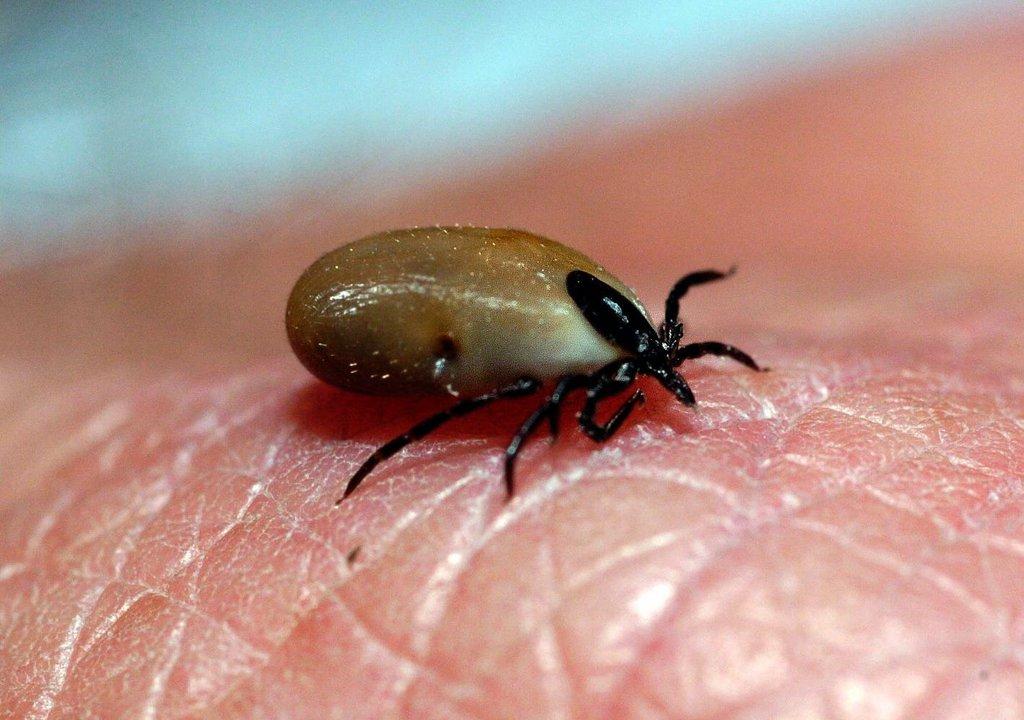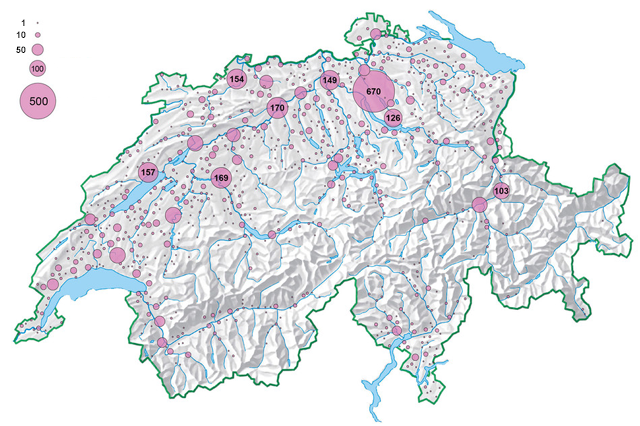
Coming to Switzerland? Watch out for ticks

There are more ticks around already this season in Switzerland than usual. Where do you need to look out for them and what should you do while you’re visiting the country?
Why are there more ticks around than usual?
Because of the cold winter, there is now an above-average number of ticks so far this spring, Dr Norbert Schütz from the Swiss League for Tick-Related Illnesses told swissinfo.ch. As “the ground was frozen in December and January”, the ticks were able to “save up lots of energy for when they woke up in warmer weather” after hibernating.
Why are tick bites a problem?
Between March and November, at the height of tick season, a bite can be an unpleasant experience. When someone notices they have a tick attached to their skin, the first reaction can be to pull it off by hand. What many people do not know is that ticks have to be properly and fully removed using tweezers, not just pulled out by hand. If part of the tick remains under the skin for longer than around 36-48 hours there is a risk of contracting Lyme disease through bacteria that spreads. There can also be a risk of contracting meningitis, or other illnesses.
What are the warning signs?
If you develop any of the following symptoms in the three weeks following a tick bite, you should seek medical attention:
– flu-like symptoms
– dizziness
– joint pain or headache
– nausea
Where do tick bites happen?
Ticks that can cause serious illnesses can potentially be found all over Switzerland, from Lake Constance in the North-East to Geneva in the West.
The Zurich University of Applied Sciences (ZHAW) has collected data over the past two years on where people are bitten by ticks, from a mobile app called ‘ZeckExternal link’. The recorded tick bites are shown in the map below.

The app had over 6,000 reported incidents. What it shows is that most bites occurred in urban areas.
While cities and surrounding areas are of course more populated than country villages, it raises an important point. ZHAW researcher Werner Tischhauser told Swiss Public Television, SRF, “It’s important to know that you don’t have to be in a forest or a meadow to be bitten by a tick”.
What about in the mountains?
Ticks are only found up to around 1,500 metres above sea level. Which means you won’t find them if you spend a day high up in the Swiss Alps.
Is there up to date information available about ticks?
The Swiss Federal Office for Public Health collects data on tick bites in Switzerland, and publishes monthly informationExternal link on the situation, which is often spoken or written about in the Swiss media.
There is also a national reference centreExternal link for ticks based in Spiez, canton Bern which specialises in diagnosing tick-related illnesses.
How many cases of Lyme disease happen in Switzerland every year?
There are an estimated 6,000-12,000 cases of Lyme boreliosis per year (boreliosis is the type of bacteria that causes Lyme disease). Out of these, around 100-250 people actually become ill. So far in 2017, there have been no acute cases of lyme disease reported in Switzerland, according to figures from the Federal Office for Public Health.
What can I do to protect myself from ticks while in Switzerland?
If you are coming to Switzerland specifically for a hiking holiday or to enjoy Switzerland’s nature, Dr Schütz advises travelers to get a meningitis vaccination before coming. Unfortunately there is no vaccination against Lyme disease.
Additional steps to be taken include:
Wear long trousers and closed shoes if out walking
Tuck your trousers into your socks
Use insecticide
Check your clothes and skin after coming home from a day out.

In compliance with the JTI standards
More: SWI swissinfo.ch certified by the Journalism Trust Initiative





























You can find an overview of ongoing debates with our journalists here . Please join us!
If you want to start a conversation about a topic raised in this article or want to report factual errors, email us at english@swissinfo.ch.